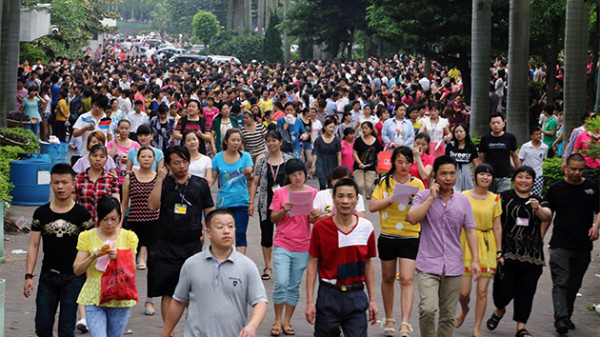The two-week strike by 40,000 workers at the vast Yue Yuen shoe factory in Dongguan last month was one of the largest strikes in living memory [in China]. It was important not simply because of its sheer scale but also because it highlighted what is likely to become one of the most pressing problems facing the Chinese government in the next decade – social security.
In this newsletter [China Labour Bulletin *] we take a detailed look at the Yue Yuen strike through the eyes of the workers involved, examine how wage growth for migrant workers in China has failed to keep up with the cost of living, and comment on attempts by the Hong Kong business community to block collective bargaining legislation in Guangdong. We also highlight the resolve and determination of jailed worker activists in China to continue their struggle after their release.
As the Yue Yuen strike died down at the end of April, the labour activist Xiaoqiu talked to a 15-year veteran at the factory about pay and working conditions, the reasons for the strike and what the future holds for the thousands of middle-aged workers who gave their youth to the company.
Real wages for China’s migrant workers stagnate as cost of living escalates: The average monthly wage for China’s rural migrant workers in 2013 stood at 2,609 yuan, an increase of 13.9 percent over the previous year. However, living expenses increased at a much faster rate, effectively cancelling out any gains made.
China Labour Bulletin issued a statement on 16 May 2014 in response to the continuing efforts of the Hong Kong business community to derail passage of the Guangdong provincial government’s Draft Regulations on Enterprise Collective Consultations and Collective Contracts.










